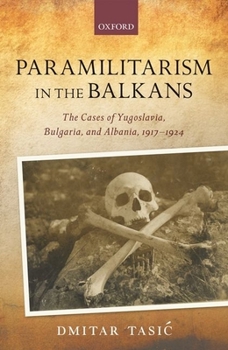Paramilitarism in the Balkans: Yugoslavia, Bulgaria, and Albania, 1917-1924
(Part of the The Greater War Series)
Paramilitarism in the Balkans analyses the origins and manifestations of paramilitary violence in three neighbouring Balkan countries - Yugoslavia, Bulgaria, and Albania - after the First World War. It shows the role of paramilitarism in internal and external policies in all three states, focusing on the main actors and perpetrators of paramilitary violence, their social backgrounds, motivations, and future career trajectories. Dmitar Tasi c places the region into the broader European context of booming paramilitarism that came as the result of the first global conflict, dissolution of old empires, the creation of nation-states, and simultaneous revolutions. While paramilitarism in most post-Great War European states was the product of violence of the First World War and brutalization which societies of both victorious and defeated countries went through, paramilitarism in the Balkans was closely connected with the already existing traditions originating from the period of armed struggle against Ottoman rule, and state and nation building projects of the late-nineteenth and early-twentieth centuries. Paramilitary traditions were so strong that in all subsequent crises and military conflicts in the Balkans the legacy of paramilitarism remained alive and present.
Format:Hardcover
Language:English
ISBN:0198858329
ISBN13:9780198858324
Release Date:September 2020
Publisher:Oxford University Press (UK)
Length:282 Pages
Weight:1.35 lbs.
Dimensions:1.0" x 6.2" x 9.3"
Related Subjects
HistoryCustomer Reviews
0 rating





